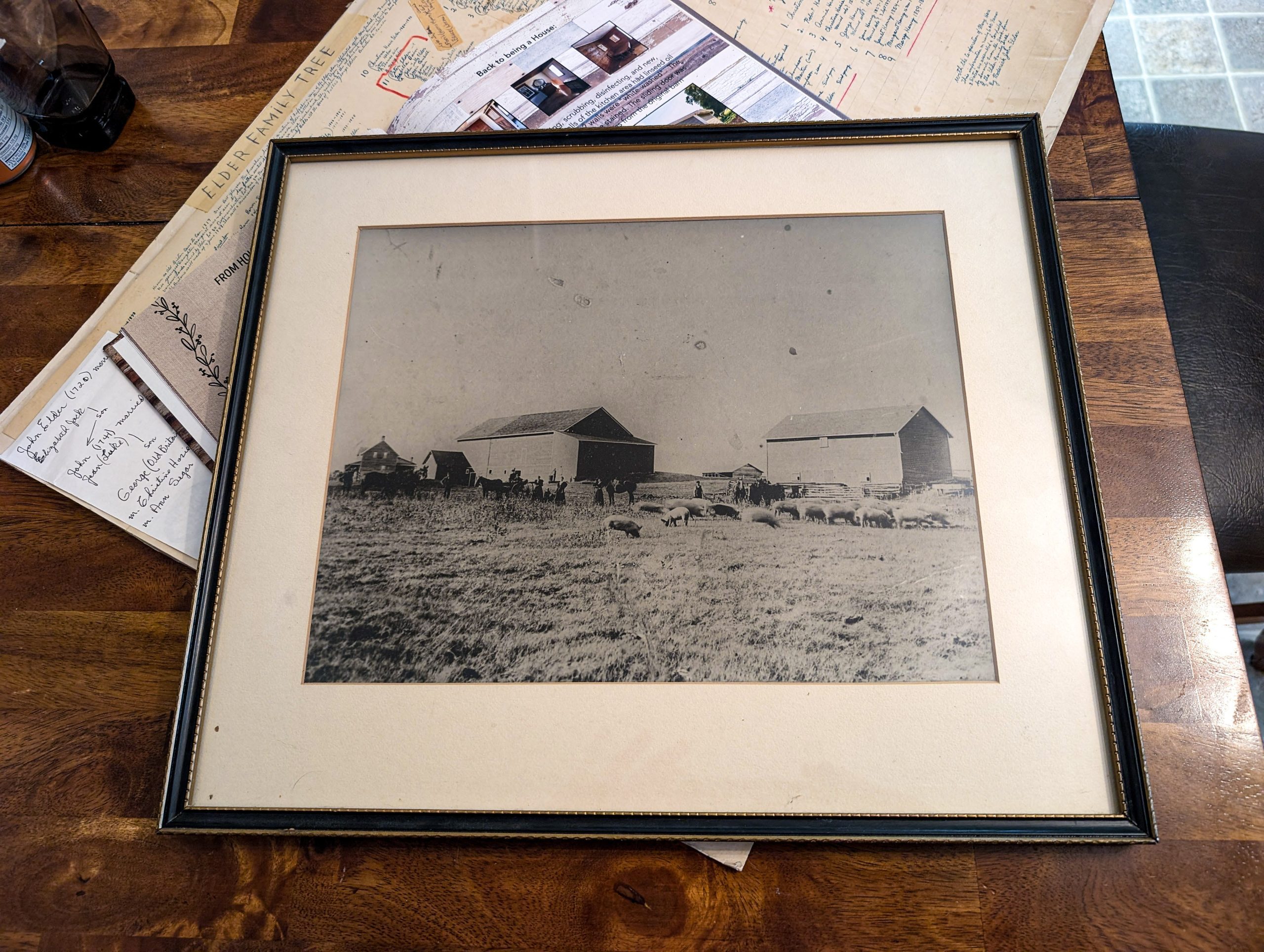Every farmer will need an exit strategy, whether you’re looking forward to it or not. Age, health and family issues won’t wait forever. Besides, being proactive now can save tons of stress and family conflict and potentially thousands of dollars later on.
It will make you happier too. So isn’t that worth thinking about?
In your 40s
Read Also

Why you should preserve your farm’s history
There was a big cast iron dinner bell in the middle of the farmyard where Maggie Van Camp grew up….
In your 40s, it can seem there’s no point spending any time thinking about retirement now. You’re already busy enough with the farm.
But read on. There are easy steps you can take today to save you and your family a lot of grief and to maximize your future flexibility.
1. Your ‘just in case’ list
For young farmers with dependent children, income security for the future is paramount and a critical component of risk management, says Elaine Froese, Manitoba-based farm family coach. This takes having an updated will, power of attorney and insurance. You should also complete the “Because I Love You List” (see resources) to ensure passwords, bank accounts and important contacts are accessible in case of a serious injury, illness or death.
2. Grow your financial flexibility
It’s also time to take some first steps in your financial planning for retirement. Yes, it’s too soon for any clear picture of what the farm’s eventual succession plan might look like. Instead, you can make proactive moves to keep more options more open. Winnipeg financial planner Colin Sabourin, for instance, says funneling some savings into investments outside the farm may provide an income stream other than the farm if your children do want to take over.
3. Get your team on side
Your 40s is also a good time to focus on building a great team of advisors, says Lydia Carpenter, farm transition coach based at Belmont, Man. She recommends a team with an accountant, lawyer and financial planner you trust. Be sure you can ask the big questions. “You should also be able to say to your accountant, ‘Stop, can you explain that,’” says Carpenter.
4. Keep both spouses informed
It’s a good idea for both spouses to know how the money flows in and out, adds Kitchener, Ont. financial advisor Sara McCullough. And, she continues, both spouses should have a credit history and access to money in the event of a separation or sudden death.
5. Know where you stand with farm ownership
If you’re in your 40s and you don’t have ownership or a transition plan with the senior generation, it’s time to get there, adds McCullough. If young people are not being treated well in a multi-generation farm and not being compensated fairly, agrees Froese, they do have “the option to seek non-related parties who will treat them as a business partnership.”
In your 50s
As you enter your 50s, McCullough says it’s imperative to recognize where you are “on the timeline” and to acknowledge that at some point you will be stopping work or, at least, making changes in how you work. “As yourself, in the next 10 to 15 years, what do you want work to look like? What do you see yourself doing?” McCullough says. “This is the time to ask, does it still makes sense to build that new barn?”
1. Know the timeline
Guelph, Ont. transition coach Maggie Van Camp agrees it’s important to gain a sense of the timeline and think about what you want to do with the last third of your life. Also be realistic about the changes ahead. For instance, if you want to travel, make plans to do the more adventurous trips while you are still healthy and insurance is affordable.
Van Camp also likes the idea of putting money into a health fund to cover health care expenses such as a nursing home or homecare. This kind of care can cost more than the farm can easily carry, she warns.
Van Camp also emphasizes the importance of ensuring your advisory team now includes a transition coach. “Transitioning takes a different skill set,” she says. “Transitions aren’t linear, which is difficult for farmers who are task-oriented.”
2. Re-assess your financial goal
Sabourin advises that during your 50s it’s also the time to get clear on your financial goals. How much will you need when you are no longer farming? To begin, track everything you spend for a few months, separating farm and personal expenses such as heat, hydro and vehicle.
3. Keep your estate plan up to date
Make it a priority to keep your will and estate plan up to date, says Sabourin. Van Camp agrees, and she recommends being open with your family about your will so there are no surprises.
4. What does your spouse think?
Don’t just guess at what your spouse is thinking about your futures. Ask about it. Talk about it. These are important years for spouses to articulate their visions for the future, says Froese. “Are your visions in alignment? ”
In your 60s
Now it’s time for some real honesty. Be honest about the farm’s finances, about any family conflict, and about your changing needs.
1. You can’t keep all options open
It’s also time to start closing the doors on some future possibilities for the farm, says Sabourin. If you have kids, they need to decide if they want to take over.
2. It’s time to prepare yourself
This is the time to get ready emotionally for the next stage, says Van Camp. “It’s a time to dip your toe in the water and try new things. What’s on your wish list?”
3. It’s also time to celebrate
If the farm is being sold to someone outside the family, Froese stresses the importance of ritual in easing the transition. “Celebrate what the farm has given you… stay in touch with the new owners and ask them if you can visit…be respectful.”
4. Stop pretending you’re 21
Froese sees some worrying farm behaviours. The first is farmers who are in denial about aging. “Stop pretending,” she says. “Is your financial picture keeping up with your actual age?”
5. Get real about farm debt
Froese has also seen older farmers so embarrassed by the amount of debt the farm has on the books that they avoid talking about succession. But that’s exactly what transition coaches can help with, i.e., both dealing with the debt and dealing with the emotions. You’ll find that expressing emotion is a positive conflict resolution strategy, she says.
6. Do you need help with family conflict?
Carpenter agrees. She says facilitators can provide conflict resolution skills as well as broader support for the complex emotions that can arise, including grief, sadness, anxiety and anger, especially if there are health issues. “People don’t always recognize that it’s grief when it’s an ambiguous loss like ‘you thought you’d be in a different place,’ but the grief from the loss of identity as a farmer is real.”
7. Get better at introspection
Carpenter recommends taking some time for moments of introspection to ask yourself “What do I really want?” Ensure you are taking care of your own needs rather than sacrificing for the family. And if retirement is a dirty word for you, Froese suggests thinking of it as a sort of role correction for your third chapter.
Be aware too that some people have a hard time accepting the need for change, Froese says. Then also remember, “A decision not to make a decision is still a decision.”
Resources
















